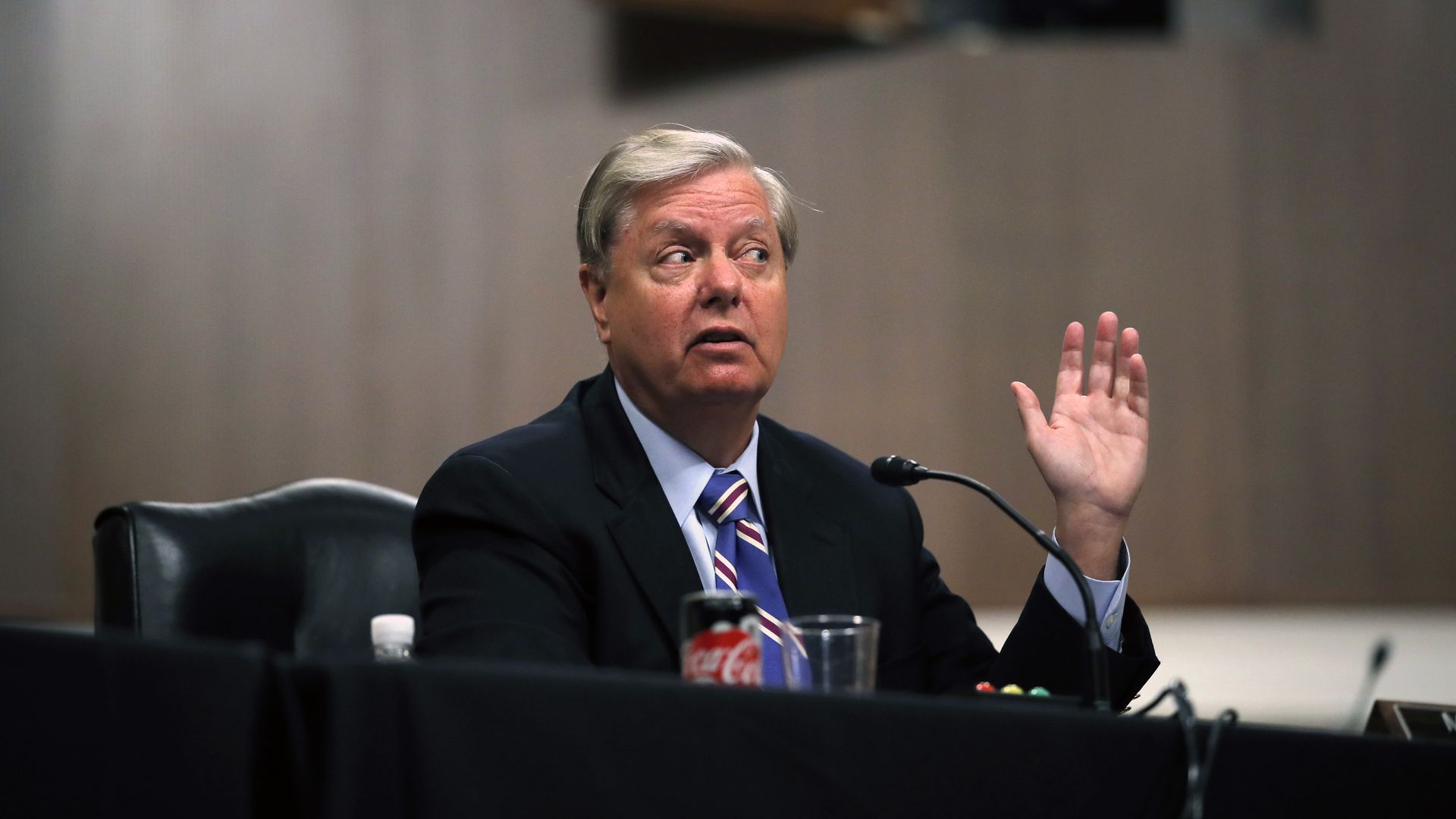Graham: Trump visa restrictions will have "chilling effect" on economic recovery
Add Axios as your preferred source to
see more of our stories on Google.

Photo: Carolyn Kaster-Pool/Getty Images
Sen. Lindsey Graham (R-S.C.) said on Monday that President Trump's expansion of legal immigration restrictions — including a temporary ban on high-skilled H-1B visas — will have a "chilling effect" on the country's economic recovery.
Why it matters: Graham is one of Trump's closest allies in the Senate. He and many pro-business groups, including major tech companies and the U.S. Chamber of Commerce, have expressed disapproval at the decision to restrict legal immigration during the pandemic.
What he's saying: Graham tweeted, "Those who believe legal immigration, particularly work visas, are harmful to the American worker do not understand the American economy."
- "Work visas for temporary and seasonal jobs covering industries like hospitality, forestry, and many economic sectors can only be issued AFTER American workers have had a chance to fill the job position."
- "Before coronavirus, legal immigration and programs like these played an important role in helping President Trump create the strongest economy in generation. I have little doubt that programs like these would help him build it again."
- "Unfortunately, I fear the President’s decision today to temporarily shut down these programs will create a drag on our economic recovery."
- "The shuttering of these programs may not lead to employment opportunities for displaced American workers, but could instead increase the cost of consumer goods for Americans — particularly service industry related products," he added.
The big picture: The Trump administration on Monday banned U.S. entry for foreigners on specific temporary work visas through 2020, including high-skilled H-1B visas.
- The move expands on earlier coronavirus-related immigration restrictions, which have also been extended through the end of the year.
- Per Axios' Stef Kight, the additional restrictions will also affect H-1B spouses, non-agriculture worker H-2Bs visas, short-term workers on J-1 exchange visas, and L visas, which allow companies to move employees working overseas to U.S. offices.
